Where To Buy Medium Format Cameras
The best medium format photographic camera in 2022: big sensor cameras for experts and pros
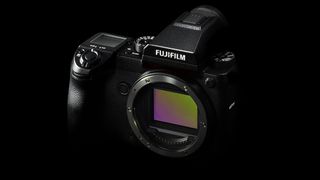
With the best medium format cameras, the heaven is the limit when it comes to image quality. With big sensors that recall the depth and dynamic range of medium format flick, these monster cameras gained an infamous reputation for being incredibly unwieldy and prohibitively expensive – just all that has changed in recent years.
Innovative new cameras from Fujifilm and Hasselblad have made medium format more than accessible than e'er. These cameras are not exactly cheap – and are never going to be – but these clever mirrorless medium format and artistic modular systems are significantly more affordable than older cameras.
They're lighter as well. Hugely impressive cameras like the Fujifilm GFX 100s are packing the large sensors and the triple-digit megapixel counts, but they're besides reasonably lightweight and ergonomic, making them useable handheld without compromising on image quality.
• Fujifilm GFX 100s vs GFX 100
Meanwhile, Hasselblad is coming out with cute specimens similar the Hasselblad X1D II 50C, and clever modular camera like the Hasselblad 907X 50C. These aren't the only 2 names in the sector these days; there are Leica medium format cameras for those who tin can carry the price, and Stage Ane is nevertheless producing options with the highest pixel counts you tin become correct now. We've included the lot in this guide.
Best medium format cameras = ultimate prototype quality
There's a reason that medium format cameras are considered some of the best cameras for professionals. The size of their sensors and the image quality they offer is completely unparalleled, surpassing even that of full frame cameras like the Sony A7R Four, Nikon Z7 and Catechism EOS R5 that are squeezing more than sensors than ever onto a 35mm sensor. Medium format is simply another level.
It is worth nothing that medium format sensors come up in 2 main sizes. The 'full frame' medium format size is used by Phase 1 and Hasselblad's H-serial cameras, and it corresponds closely with the old 645 motion-picture show format. At that place's also a smaller size, midway between this and total frame sensors, which is used by the Hasselblad 10-D, Fujifilm, Pentax and Leica cameras.
But that's enough preamble. Let'south look at the best medium format cameras you can buy right now!
Best medium format photographic camera in 2022
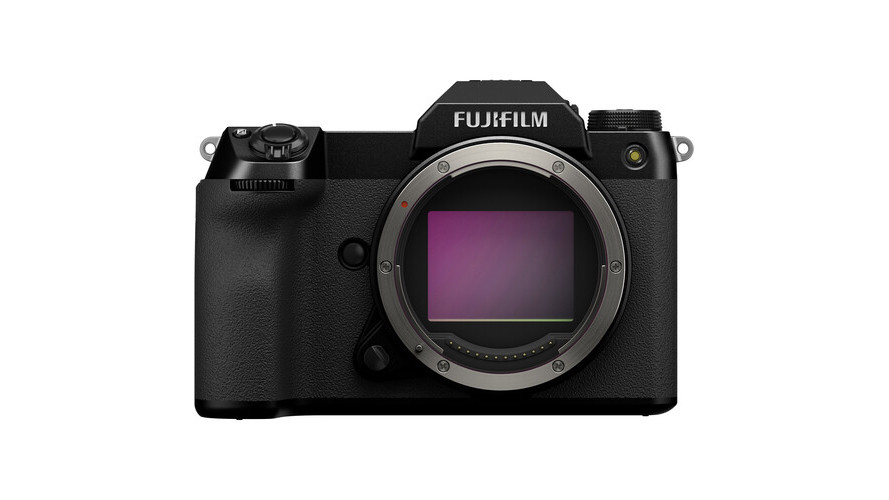
Refining a formula that has worked exceptionally well for Fujifilm, the GFX 100s continues to bring medium format to the masses past packing a large sensor into a insufficiently small body. On the outside, there's not a lot to distinguish the Fujifilm GFX 100s from whatsoever other full-frame mirrorless camera. Merely on the inside it's a different story, with a 102MP BSI-CMOS 43.8x32.9mm medium format sensor running the show.
The level of item captured past the photographic camera is simply incredible, as is the dynamic range, and all this pairs beautiful with improved autofocus and in-body paradigm stabilisation. The IBIS isn't quite good enough for on-the-go vlogging or shooting handheld at ane/8sec, but information technology'due south still very impressive. Fujifilm's gorgeous film simulation modes too make their obligatory advent, opening up some fun shooting possibilities and the ability to experiment with dissimilar looks.
This is smaller, lighter and cheaper than whatsoever other camera offering 100MP correct now. The Fujifilm GFX 100s is an outstanding achievement, and an exciting glimpse into the future of medium format.
See Best Fujifilm GF lenses
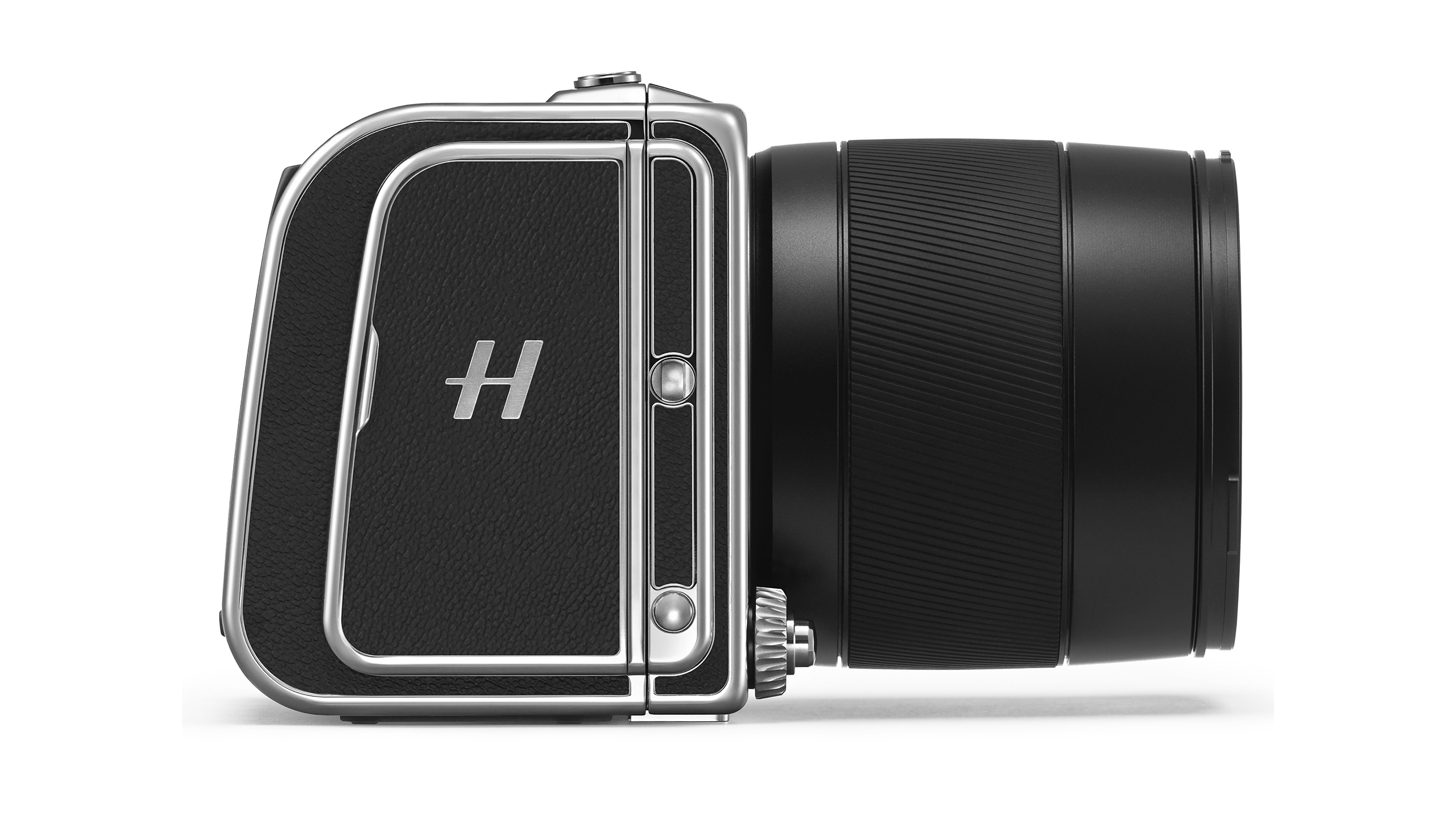
Hasselblad 907X 50C might share the aforementioned 50MP resolution and range of XCD lenses as the X1D, just information technology enjoys a clever modular design. Forth with the CFV II 50C digital dorsum which handles the image capture, there's a new 907X body that's so thin it looks like a lens adapter. This is the physical and electronic span between the digital dorsum and the lens, but what's actually impressive is that the CFV II 50C tin breath new life into your old Hasselblad 500cm (if you're lucky plenty to have one) as information technology'll take the place of the film back. There's a large 3.two-inch tilt-angle touchscreen at the rear, but no EVF, while the AF functioning tin bit a touch sluggish. The quality of finish though, including the lovely black leatherette trim and chrome edging, is classic Hasselblad, while the results are gorgeous. Many may be amend served by the X1D Ii 50C or Fujifilm GFX 50R, but this has bags of entreatment for those after a pure photographic tool.
Update: In late 2021, to celebrate its 80th anniversary, Hasselblad came out with the 907x Anniversary Edition Set. This special edition is an absolutely gorgeous version of the 907X in Lunar Grey rather than chrome, packaged alongside a matching 30mm f/3.5 lens. It'south an admittedly gorgeous set up, and information technology also retails at about $15,000, then you practise take to really want it. They've only made 800 of them, so act fast.
Read more than: Hasselblad 907X 50C review • Best Hasselblad lenses
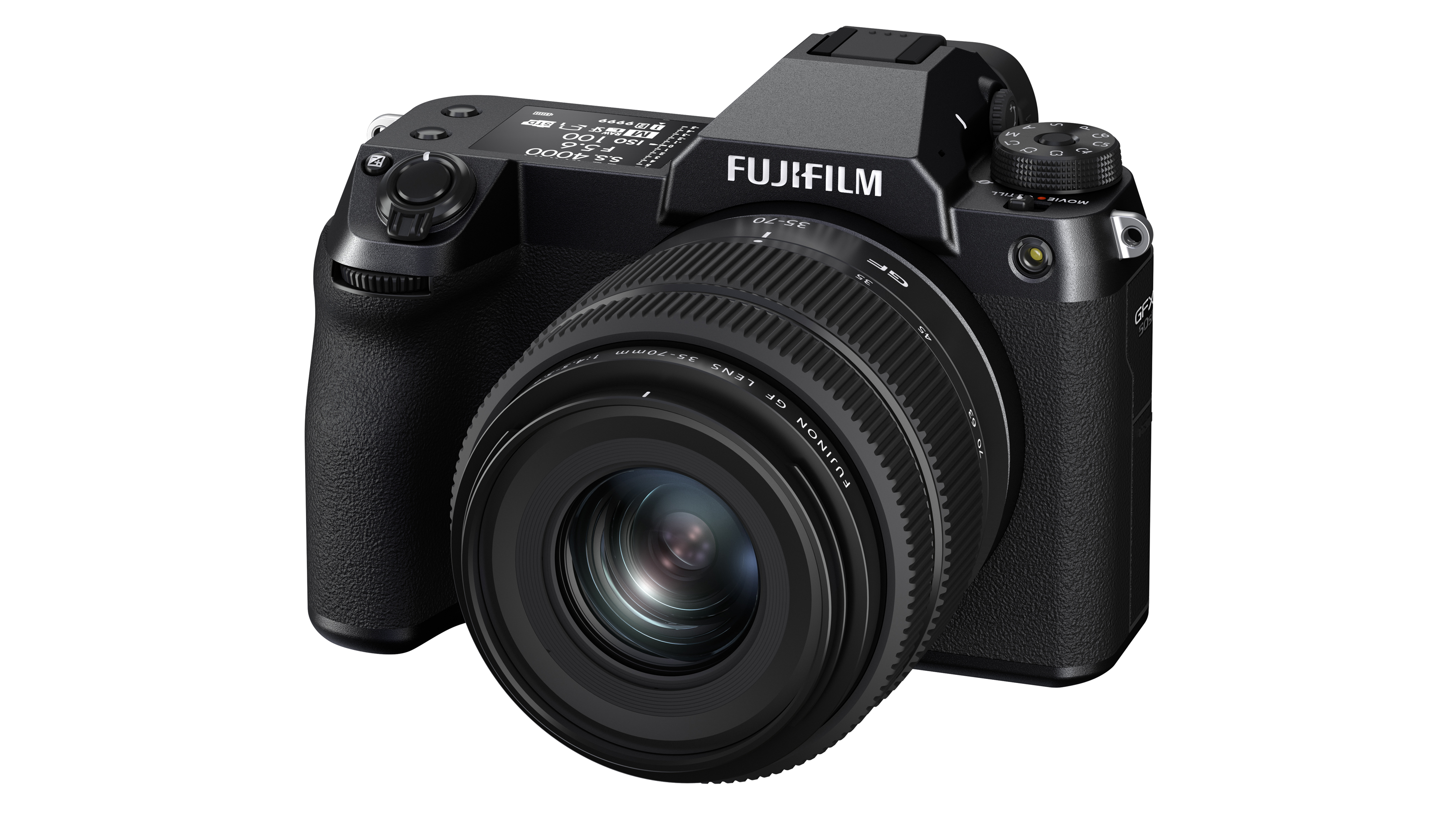
Fujifilm is standing its tradition of portability and affordability in its medium format cameras, making the GFX50S II i of the most tempting propositions yet. Information technology'southward the fifth model in the GFX series and on paper in that location doesn't seem to be a huge divergence between the Mark Two and its predecessor – Information technology reuses the 51.4MP sensor from the original GFX 50S, but it'southward housed in the more compact body of the GFX 100S, and Fujifilm have added in-trunk paradigm stabilization worth 6.v stops - a get-go for a GFX model. What's more, you get all this at a cheaper price bespeak than the original GFX 50S, making the GFX 50S Two a seriously compelling option for photographers switching to medium format.
The original GFX 50S tin can still be found new at some retailers, just oft for more coin than the superior GFX 50S II, then in that location'southward fiddling reason to consider buying the one-time model at present.
Read more: Fujifilm GFX 50S Ii review
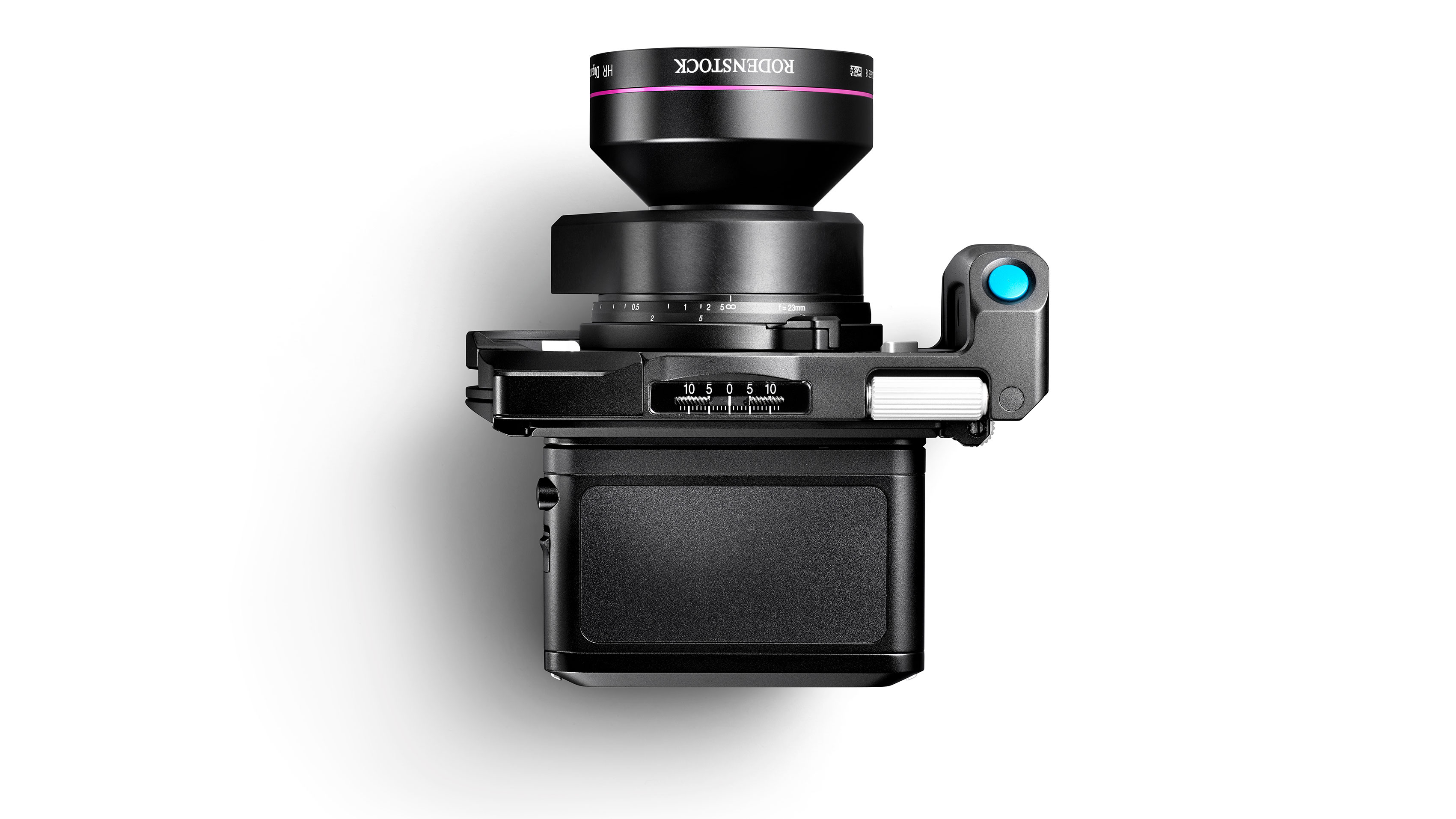
The Phase 1 XT is an extraordinary photographic camera. Phase One doesn't want to call it a 'technical' camera, or a 'field' camera, only that's the closest clarification. Information technology'due south an extremely compact modular system that takes the same IQ4 digital backs equally the Phase One XF organisation, higher up, just is designed for portability and travel. It has its own built-in lens movements for perspective correction, and relies on the LCD display on its digital dorsum for composing images. It as well uses its own lens mountain and lenses, and so the purchase cost of the XT itself is just the start.
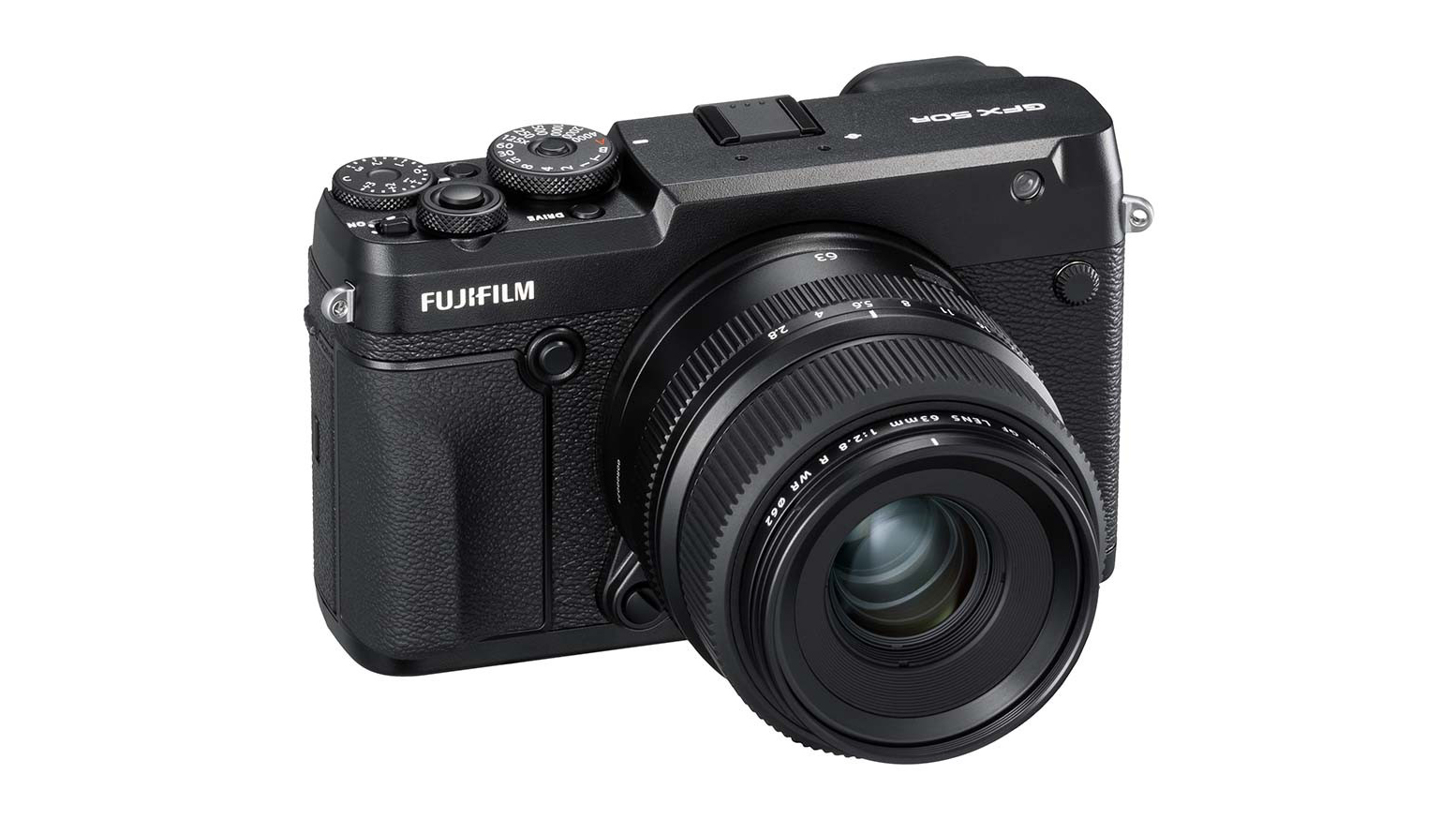
First unveiled in 2018, the GFX 50R has now been officially discontinued, replaced indirectly by the GFX 50S II (in a higher place). However the 50R is still widely available to buy, and there are plenty of reasons why you'd want to! The 'R' in Fuji's 50R model stands for 'Rangefinder', though really this means 'rangefinder style' (it doesn't actually take rangefinder focusing). Similar the original 50S earlier information technology, the weather condition-sealed 50R boasts a 51.4MP medium format image sensor. However, Fujifilm has managed to make the 50R 25mm slimmer this fourth dimension around and lighter by 145g. We love the GFX 50R because it's relatively compact, very much like a conventional camera to utilise, it'south accessibly priced, and the pattern, build quality and finish feel admittedly first class.
Read more: Fujifilm GFX 50R review
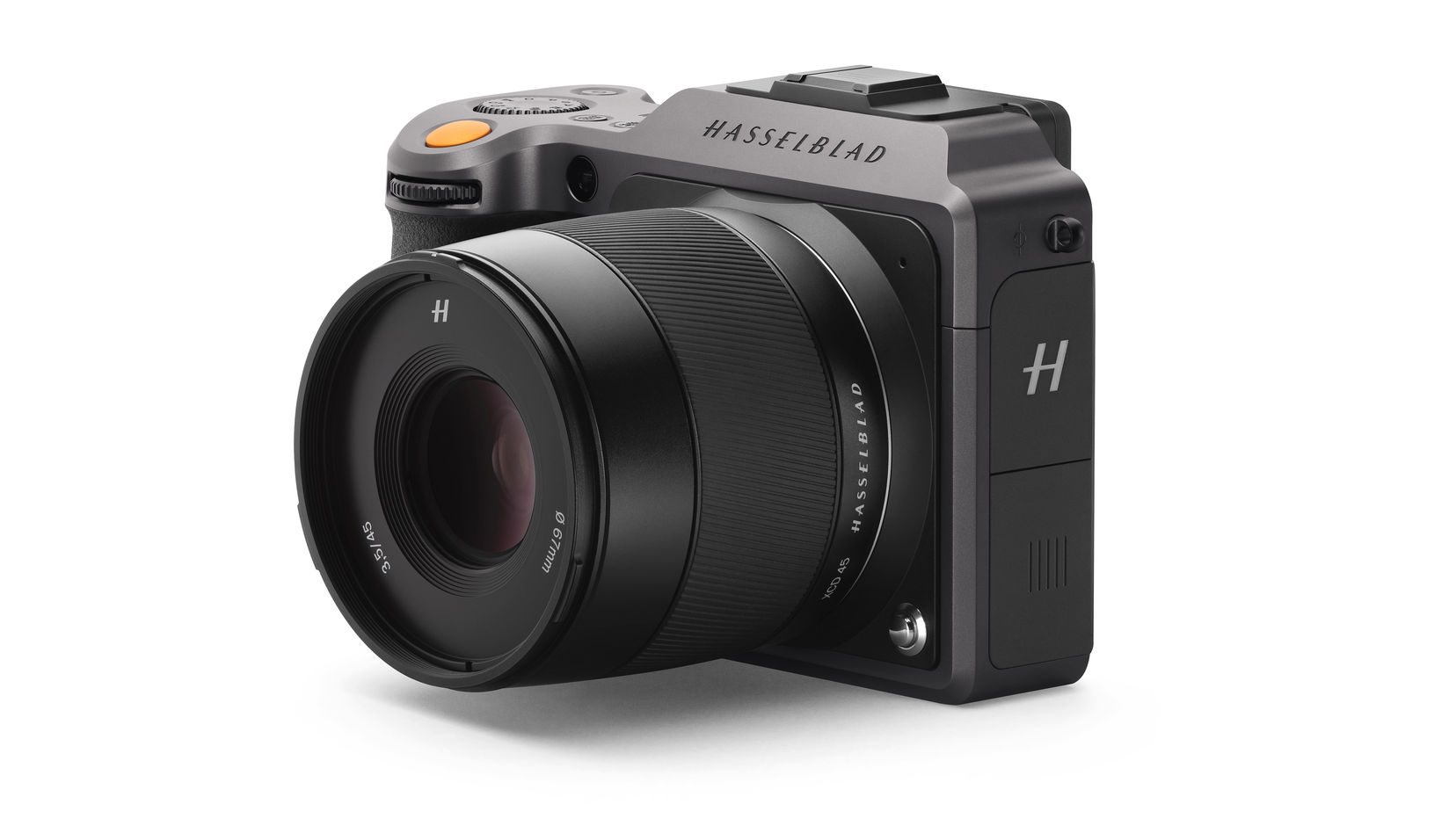
Most professionals volition choose function over style every time, but the X1D feels like it's aiming at a very different, design-witting market. It's a much more than minimal 'argument' camera than the Fujifilm GFX 50R, despite sharing the same dimensions and sensor specs. It'south also more expensive. The Hasselblad lenses, however, are superb, as is the epitome quality – especially the dynamic range. We've but finished testing the latest X1D 2 50c, which comes with a host of performance and operational improvements, including faster startup, a larger, higher-resolution rear screen and an improved electronic viewfinder. The leisurely contrast-based autofocus remains, though, and while the image quality is quite superb – you can give thanks the sensor and Hasselblad's excellent lenses for that – this is non a photographic camera that likes to exist rushed. It is, however, cute to handle and, bluntly, to look at!
Read more than: Hasselblad X1D II 50C review
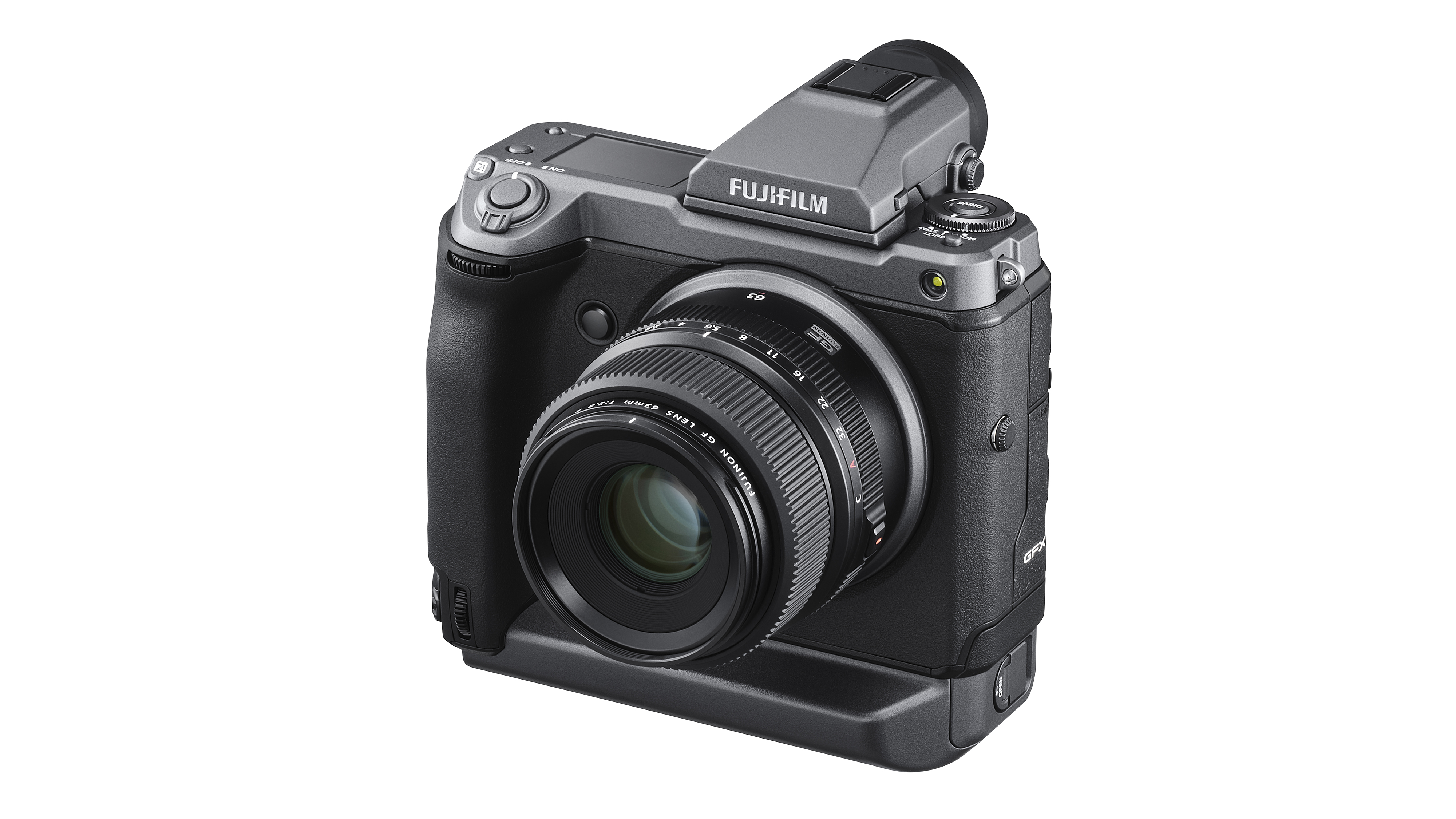
The GFX 100 is expensive compared to regular cameras, but in the world of medium format photography (sensors larger than 35mm full frame), it's a positive deal. Information technology'southward likewise a groundbreaking camera that changes our expectations nearly what medium format cameras can do. Its 100-megapixel resolution challenged our own testing procedures, its in-body stabilisation is a medium format kickoff, and its hybrid AF (cheers to a recent firmware update) is a huge pace forward. It'southward a much more practical proffer for handheld photography than the Hasselbad 907x, though more expensive too. The real rival for the GFX 100, however, comes from Fujifilm itself, namely the stunning GFX 100s at our #i spot.
Read more than: Fujifilm GFX 100 review
Best Hasselblad camera
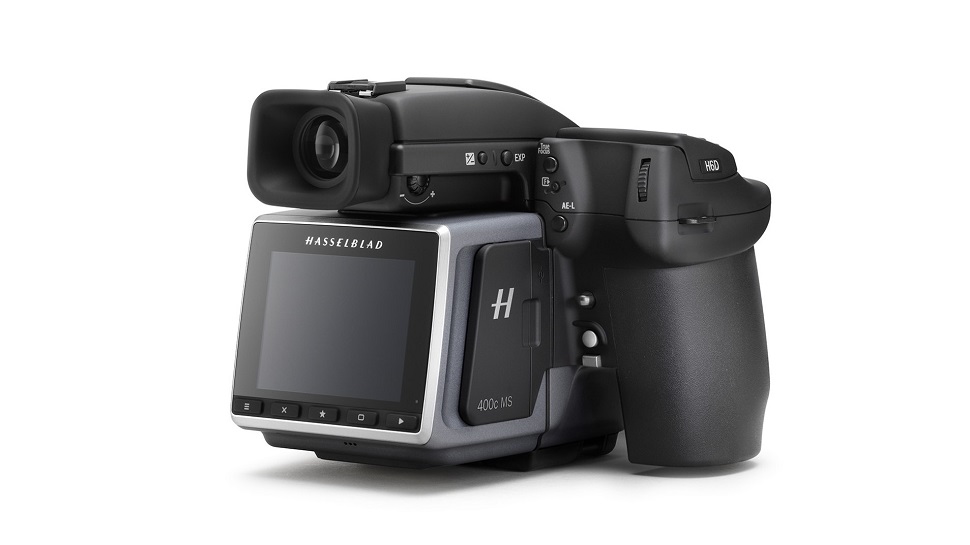
Canon and Nikon have been duking information technology out for years in the DSLR market, but in the world of medium format it'south Phase One vs Hasselblad. The H6D-100c is the latest in Hasselblad'south long-running modular medium format organization, and while Hasselblad tin't match the Phase I for megapixels without resorting to multi-shot models similar the H6D-400c, it does have the cachet and customer loyalty of the Hasselblad brand, and the visitor has been extremely adept at combining its new tech with its much-loved legacy products. This is the best Hasselblad camera on the market today for full diddled medium format shooting that achieves 100MP.
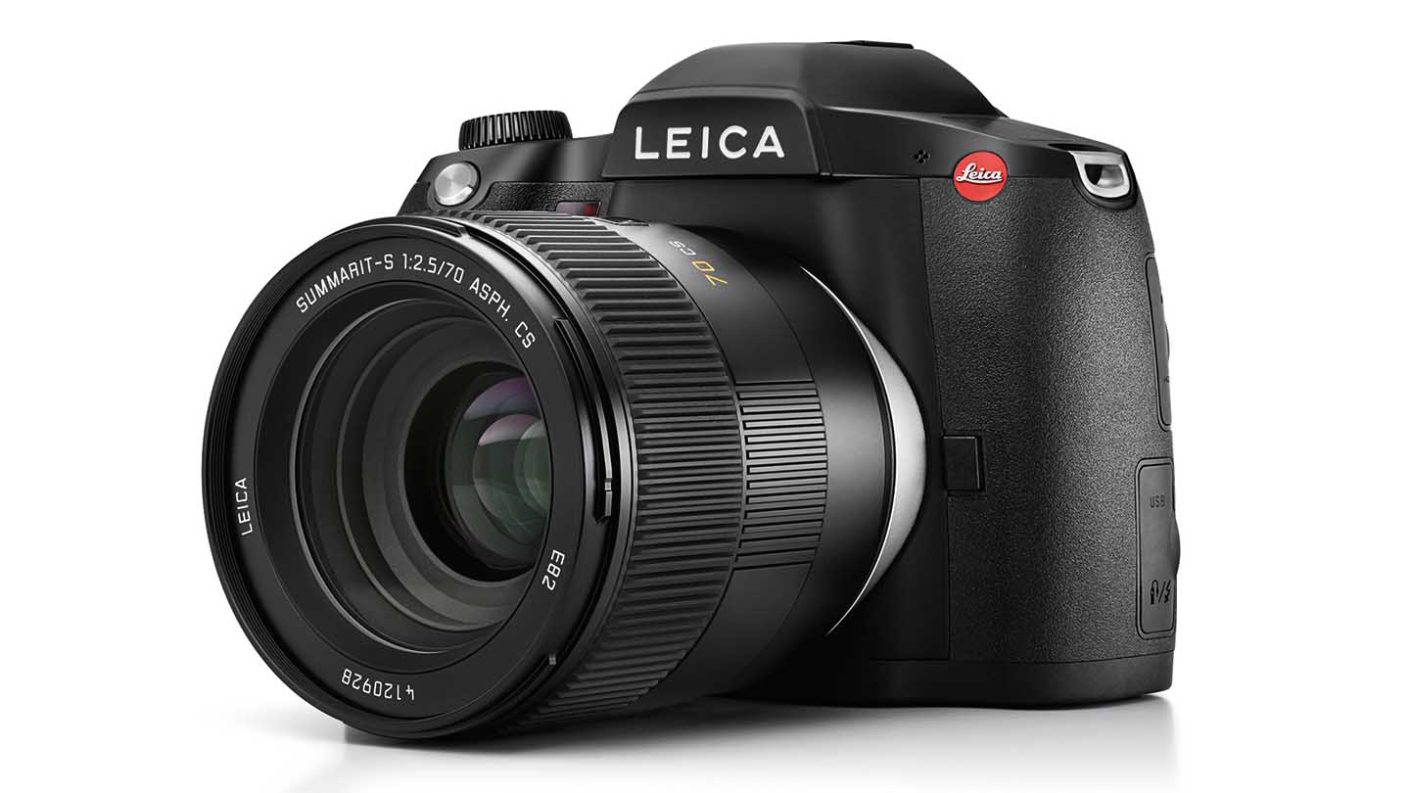
We tried the Leica S3 every bit far back as Photokina 2018 and thought it was wonderful... but nosotros had to expect until March 2020 for it to go officially available. It's essentially the size of a conventional DSLR, but this latest iteration boasts a 64MP sensor measuring 30x45mm, bettering the Fujifilm GFX 50S Ii and 50R in terms of headline resolution, if not the GFX 100. The Leica S3 promises 4K cinema-quality video capture with stereo sound via built-in microphone or optional accessory mic, a maximum ISO sensitivity of ISO 50,000, a Live View fashion with 60fps refresh rate. Information technology's such a cute affair, merely the S3's price ways that its entreatment will be limited to high-end pros and very well off Leica enthusiasts.
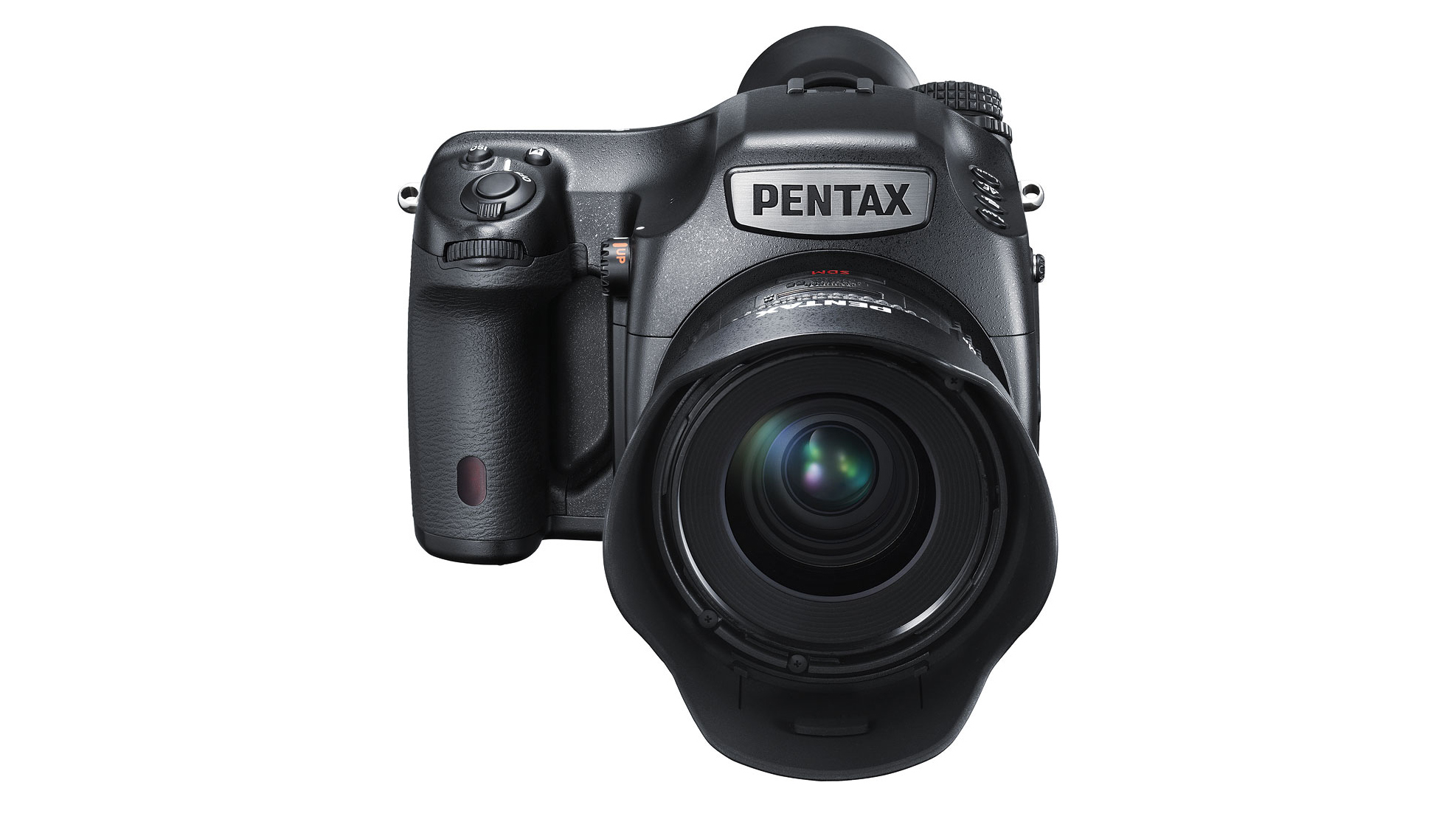
Five years is a long fourth dimension in the digital camera market, and that's how long ago the Pentax 645Z was launched. Revolutionary for its time, the 645Z is solidly built and weatherproof, piece of cake to use and at the more than affordable end of the medium format camera marketplace. On acme of this, images are excellent, even by electric current standards. Replacing the older Pentax 645D, the 645Z has a Sony CMOS sensor at its heart and has had its resolution boosted from 40 to 51 meg pixels. The maximum shooting speed sounds minor at 3fps, for upwards to 10 raw images or xxx highest quality JPEGs, but this is fine for a medium format camera. With the same AF system as found in Pentax'south own K-three, the photographic camera boasts 27 AF points, 25 of which are the more sensitive cantankerous blazon, enabling information technology to capably piece of work down to the equivalent of -3EV. The only worry with the 645Z is that things move slowly in the Pentax world, so it's hard to predict what lenses and what upgrades might come up in the future.
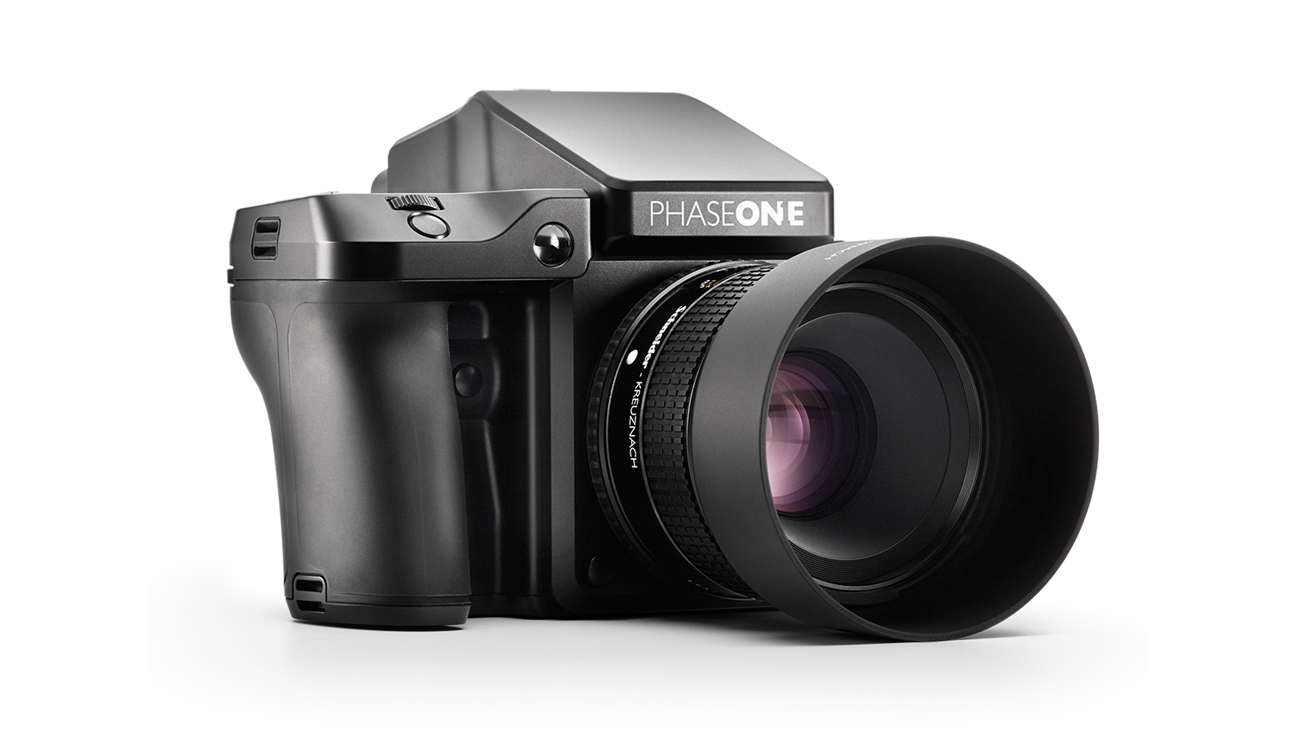
Obviously the PhaseOne IQ4 system is way outside the telescopic of regular photographers, only for high-end commercial photographers with well-heeled clients who need the highest standards, information technology's a very sound commercial proffer to either buy or rent. The XF IQ4 needs careful handling and considerable investment. It's not a walkaround camera y'all can stuff into a haversack. But this, and loftier-stop medium format cameras like it, can accomplish a level of quality, precision and control you wouldn't believe. Hasselblad (below) tin can claim 400 megapixel capture with its multi-shot H6D-400c, but the PhaseOne XF IQ4 150MP has the highest unmarried-shot native resolution of all.
Read more: PhaseOne XF IQ4 150MP review
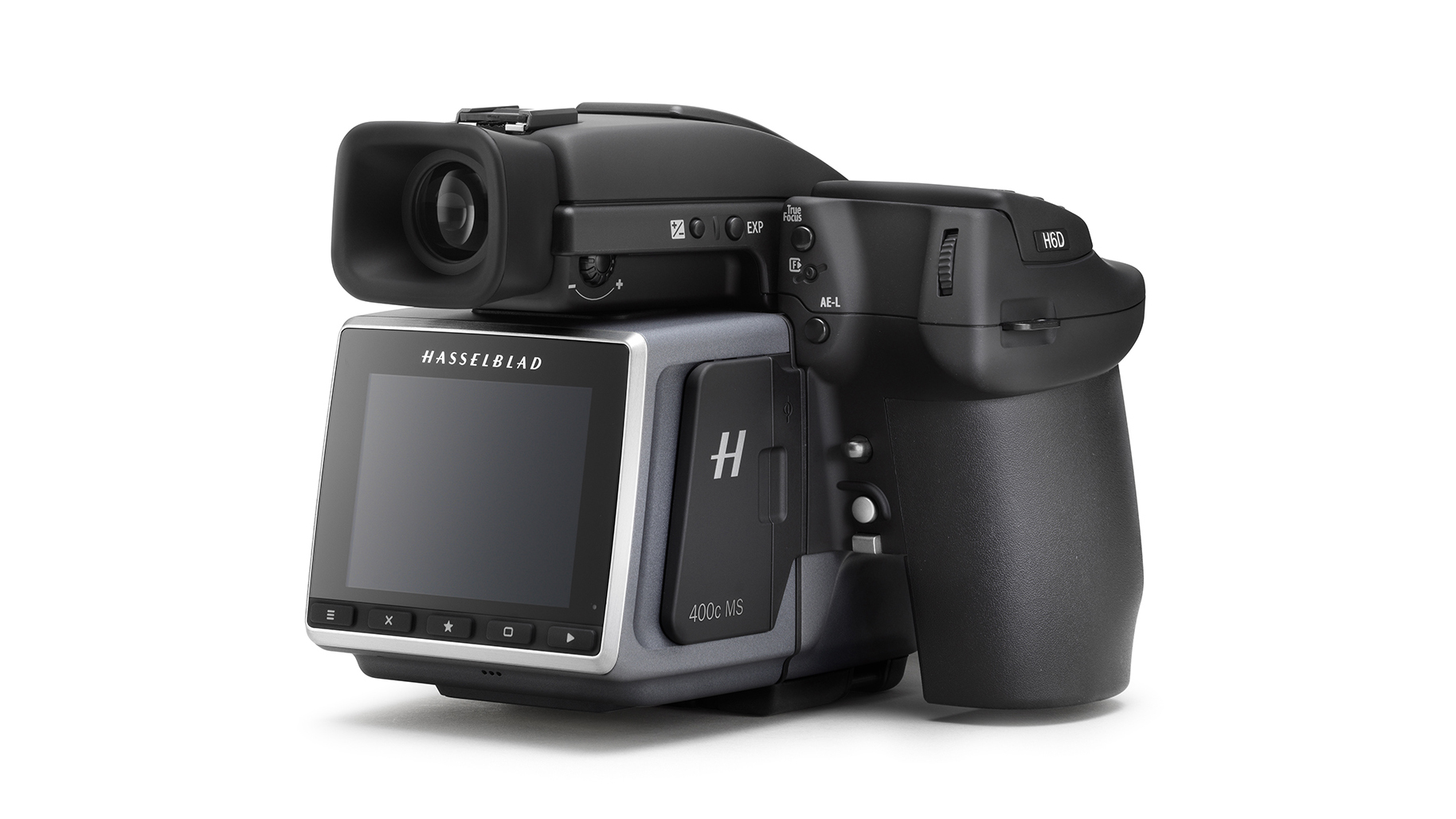
With a price tag running into tens of thousands (effectually £40K at the time of writing), this obviously isn't going to exist your entry bespeak into medium format photography. Nosotros're including here as an instance of the current pinnacle of the medium format world (there's ever the option of renting it out!) and what medium format photography used to toll until the latest camera releases. The H6D-400c features a 100MP CMOS sensor, with its maximum effective resolution of 400MP being achieved via half-dozen-shot epitome capture. The process involves the sensor beingness moved one pixel at a time for the showtime four shots to reach real color data – the capture of red, light-green and blue colour information – before beingness returned to its starting indicate. It's designed for tethered shooting with the assistance of a Mac or PC.
Read more:
• These are the best cameras for professionals correct now
• On a budget? These are the cheapest full frame cameras you tin get
• We option the best mirrorless cameras today
• The 12 highest resolution cameras you can buy today
Related articles
Source: https://www.digitalcameraworld.com/buying-guides/the-best-medium-format-camera
Posted by: ginngrens1986.blogspot.com


0 Response to "Where To Buy Medium Format Cameras"
Post a Comment